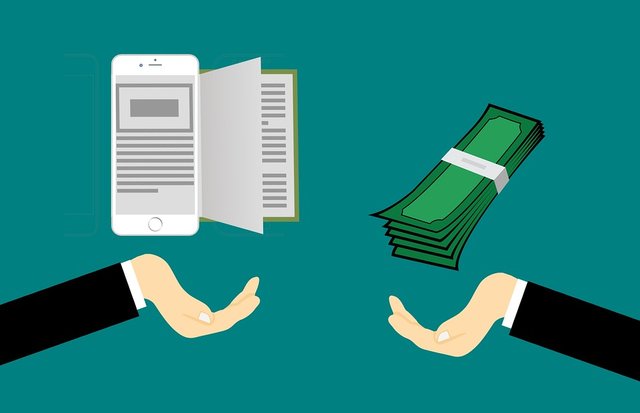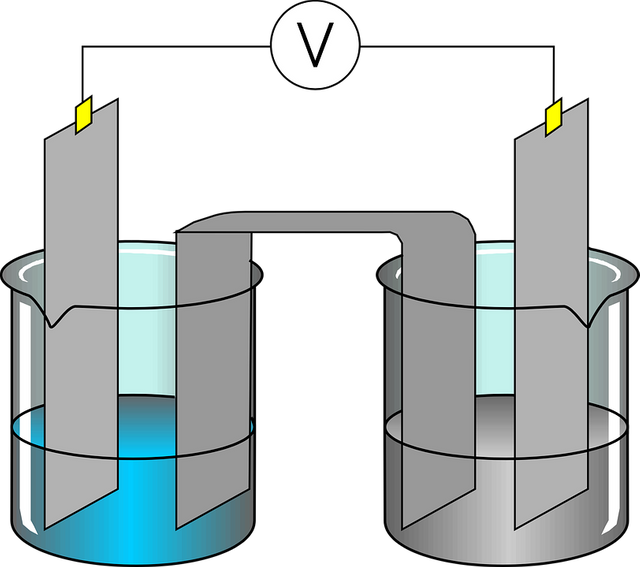The science of scamming people
I work as a scientist in an academic institution and like many people in the field, sometimes I ask myself questions. Sometimes these questions are inherent to scientific disciplines like biology or engineering and sometimes they are about life. It’s not easy to be a scientist, especially in academia.
It’s not just because of the difficulties encountered during experiments (especially when you do something that has never been done before you have to figure everything out by yourself) or being constantly under pressure to get more funding to continue doing research. It’s also because there is often a lack of fairness and often you are not being appreciated for what you do. Or at least not while you are alive (see Galileo or Mendel).
But, in parallel to this, there are people that manage to reap incredible profits exploiting the work of scientists. So, the question is:
How is it possible that often smart people in science are so bad at making money from their work?
Not only this, but there is generally a stigma associated with making money while doing science, so often scientists are expected to work for free.
Anyway, let’s look at the other side of things and let’s see who makes big profits using science while scamming people:
Science publishing industry
This probably one of the most outrageous examples. These so-called “journals” make profits at least in 5 ways:
• They receive subsidies from governments for their services, yet they charge the public for them
• Universities have to pay extortionary fees to access papers, even the ones they publish themselves
• They charge the authors publishing fees, they range from 1,000$ to 4,000$ per article
• They charge the public to access these papers, generally, it’s about 30$ per article
• They make money from advertising
At the same time, they save money by:
• They ask scientists to review submitted manuscripts, they don’t pay scientists for their time so it’s free labour
• They ask scientists to be editors of their journals. Scientists than lend their authority to give legitimacy to the journal while at the same time having to solicit other scientists to publish on these journals. Again, the scientists are generally not paid for this
• Research is expensive, yet Journals don’t spend anything to support scientists in their research, it’s all publicly funded research yet the results are often not accessible to the public
• They don’t even print anymore their articles (yet they still charge printing fees for each colour image in the paper), most articles are available in digital format.
This is a multi-billion dollars industry, yet it doesn’t pay people that work in it. The funding agencies for science should require that science funded with public money should be available freely to the public. Yet, they allow this scam to go on.
Nutritionists and homoeopathy
Scientific knowledge is free (or should be) and we all pretty much know what we should and should not do. Yet, we fall for people that overcomplicate science. Their job is to infuse mystery into science. In other words: they professionalize the obvious. They transform science into a monolithic entity, rather than a method used to test hypotheses.
There is a whole multi-billion dollar industry that tries to sell you dietary supplements with questionable real health benefits.
When they don’t find real scientific evidence they just make-up some. One example is the homoeopathic industry. It relies on pseudoscience or on badly designed scientific studies. They claim that by diluting something an infinite amount of times we can still retain their health benefits while decreasing their toxicity, all because they think that water has a memory. If that’s true, so why don’t just drink tap water? Molecules have been definitely diluted an infinite amount of times in tap water and you can find any "memory" of molecules you need (in the US if you drink tap water you may actually drink a small amount of drugs, in some States anti-depressants are so widely used that they can be found in tap water, reference ).
Truth is, what they observe is the placebo effect. If you were to give a sugar pill to someone and tell him that it will make him feel better, it probably will. The placebo effect it’s actually very powerful. You can even do the opposite, if you tell people that the sugar pill contains a poison, they may even develop the symptoms of the poison. Also, when pharmaceutical companies simply change the color of their pills there are patients that claim side-effects even when the pharmacological molecule contained is the same (reference). Remember that your mind can regulate the release of different hormones, so your state of mind will likely influence your health.
Cosmetics and detox treatments
There is a lot of money to be made from non-sense, and in this industry, there are definitely plenty of examples. One example is the so-called detox bath. They work like this: they will tell you that their special bath will be able to free your body from toxins that you accumulate in your stressful daily life. You can already tell that this is bullshit because they would not be able to name a single toxin that can be found in their bath after the treatment. But they have also orchestrated a smart story to fool you. Basically, in the bath, there will be salts like NaCl and electrodes consisting of anodes and cathodes. They will basically separate ions in a solution based on their charge in a process called electrolysis. This will cause Cl to be released as a gas and some of the other ions in solution will cause the solution to change colour. You will be impressed because they will tell you that the smell and the change in the colour of the water are due to the toxins that have been released from your body and nobody will dare question it. If you were to run a test and not enter the bath at all, you would see the water changing colour and smell the Cl in the air.
Cosmetics is another big one. One very popular product is the moisturizing cream (your girlfriend or wife may have some at home). Here the goal is to hydrate your skin. The good news is that most creams actually do that fairly well, the bad news is that they probably ripped you off because you don’t need expensive creams to do that. Simply Vaseline would do the job, but if you don’t want to deal with greasiness you can simply make an emulsion by mixing water, oil and bees-wax or honey. Companies will also add a lot more crap to convince you their product is more effective and inflate their prices. Some creams even claim to have special DNA added in them to help your cells make more collagen. Remember that our skin is designed as a defence mechanism and it’s an almost impermeable barrier. Large molecules like DNA or other proteins may not even pass through your skin.
Generally, in science when you have a hypothesis you want to test it. The easier way to do it is by designing an experiment with the right controls. Save yourself some money and pain and next time someone wants to sell you a miraculous product or treatment use https://scholar.google.com/ or https://www.ncbi.nlm.nih.gov/pubmed/ to check if there is any peer-reviewed article about it and make sure that whoever published had also the right control groups. For example, you will find that articles homoeopathic journals will often lack appropriate control groups.
* To visualize this post correctly please open it with the steemstem front-end: https://www.steemstem.io/#!/@aboutcoolscience/the-science-of-scamm-1564366606
References:
- https://www.researchgate.net/profile/Kelly_Reynolds2/publication/265424929_Pharmaceuticals_in_Drinking_Water_Supplies/links/54da435a0cf2ba88a68c29c8/Pharmaceuticals-in-Drinking-Water-Supplies.pdf
- https://www.bmj.com/content/313/7072/1624.short
- https://en.wikipedia.org/wiki/Electrolysis





Good morning @aboutcoolscience,
Phew … 😝
Jokes aside:
This is a very well-written, honest article.
Reading about the truth behind the science publishing industry truly made me cringe, despite not being fully unaware of it. As for the whole homeopathy nonsense, well … I think I have been desensitised to it! It does not even faze me anymore, as it has become commonplace among my girl friends and family members (from pills to shampoos).
I have also read one of the papers you cited here: Pharmaceuticals in Drinking Water Supplies. It was rather concerning to read about the possibility of long-term effects for humans resulted from the exposure to these chemicals in drinking water. And very disturbing to learn that this is already greatly, and seriously affecting marine life.
Thank you for informing us about all this.
I wish you a wonderful week ahead!
Thank you for your comment. Actually regarding tap water I have a colleague that studied it as his PhD thesis and he found that the concentrations of some pharmaceuticals in tap water were high enough to cross the placental barriers and affect the babies in pregnant women: https://www.sciencedirect.com/science/article/pii/S0006291X16305940 so I would avoid drinking tap water if you are pregnant
Thank you for providing me with this additional piece of information :)
I have a friend and a family member who are pregnant, and I know that at least my friend drinks tap water!
Have a great rest of the day,
Take care:)
Thanks, you too!
Concerning the publishing company part, I belong to a field really living at the forefront:
Initiatives like the last one should be more common, IMO.
For the rest of the post, I am always amazed to see how many people buy that stuff... :(
I think the field of physics is more advanced on the publications front. Unfortunately for medicine, biology and regenerative medicine we are way behind. Our field is structured in such a way that if you don't publish in some of the "prestigious" (for-profit) journals you are not taken seriously and it's not easy to obtain funding. The only way to change that is if the funding agencies start introducing some strict requirements about publishing the research funded with public money on open access journals. The governments should also regulate the publishing industry. If the for-profit companies want to charge for the articles must have to pay to researchers that review and do most of the work for them or at least be forced to reinvest part of the proceeds in funding reasearch since they generate multi-billion dollars every year, too much if you consider that who does the work for them gets nothing.
I think it would be ok to volunteer our time if the organization is non-profit, but the publishers make so much money they should contribute more in the field.
I had a relatively big correspondence with a nutrition community (mainly bodybuilding) and observed that people appreciated the scientific facts... but they hate to hear that something does not work. They want hope.
same with hair loss, weight-loss, acne/skin problems, ugliness, legal recreational drugs, small dicks, titts, aging, and really big school/cognitive performance. Oh, and of course investment and technical analyses/prediction of chaotic systems.
My mom started to watch home-shopping TV. And she thought its a scientific lecture about nutrition, in the end she was convinced that she needs to buy amino acids. ... the most abundant shit on earth....we are silly not to fool people
What about tabaco industry? Alcohol industry? War industry? All of them move billions and provide no good for our society... This contradictions are really old and are still unsolved.
Regarding scientific magazines It's a hard call but imo the Steem blockchain and the STEM community already have the basis of what can be a final solution to cut the middle man between scientists and the due income for their hard work.
(This is my third attempt to post this comment. What am I doing wrong?)
Many times family members will be annoyed with me because I ask them for sources when they offer health advice. They see my question as a personal rebuke, rather than as an effort to validate. Without legitimate studies, how can one separate conjecture from 'fact'? And even with proper studies, skepticism is always appropriate. So often one study contradicts another...sometimes for reasons that are not clear. A body of evidence rather than one citation, is usually my confidence zone.
The business about the journal articles is distressing and infuriating. Usually on the Internet it is possible to find at least the substance of just about any article, even the ones that are for sale. They may be embedded in another piece, or cited in detail.
As for making money...if you figure out that formula, please write a blog about it. I could use the information :)
Elementary, my dear Watson!!
And the big honchos in this Science Research industry know all this pretty well.
Conclusion:
or
This post has been voted on by the SteemSTEM curation team and voting trail. It is elligible for support from @utopian-io.
If you appreciate the work we are doing, then consider supporting our witness stem.witness. Additional witness support to the utopian-io witness would be appreciated as well.
For additional information please join us on the SteemSTEM discord and to get to know the rest of the community!
Thanks for having added @steemstem as a beneficiary to your post. This granted you a stronger support from SteemSTEM.
Thanks for having used the steemstem.io app. You got a stronger support!
Hi @aboutcoolscience!
Your post was upvoted by Utopian.io in cooperation with @steemstem - supporting knowledge, innovation and technological advancement on the Steem Blockchain.
Contribute to Open Source with utopian.io
Learn how to contribute on our website and join the new open source economy.
Want to chat? Join the Utopian Community on Discord https://discord.gg/h52nFrV
Hi @aboutcoolscience!
Your post was upvoted by @steem-ua, new Steem dApp, using UserAuthority for algorithmic post curation!
Your UA account score is currently 4.709 which ranks you at #1628 across all Steem accounts.
Your rank has not changed in the last three days.
In our last Algorithmic Curation Round, consisting of 133 contributions, your post is ranked at #22.
Evaluation of your UA score:
Feel free to join our @steem-ua Discord server
Congratulations @aboutcoolscience! You have completed the following achievement on the Steem blockchain and have been rewarded with new badge(s) :
You can view your badges on your Steem Board and compare to others on the Steem Ranking
If you no longer want to receive notifications, reply to this comment with the word
STOPVote for @Steemitboard as a witness to get one more award and increased upvotes!